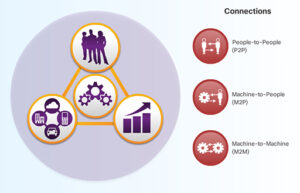Unveiling the Depths Understanding Catatonic Depression Symptoms
Catatonic depression, a severe form of major depressive disorder, imposes a profound impact on an individual’s ability to function and engage with the world. This exploration aims to unravel the intricate details of catatonic depression symptoms, shedding light on its manifestations, causes, and potential treatment options. You can also read this Understanding the Interactions Between Methocarbamol and Alcohol
Defining Catatonic Depression A Closer Look
Catatonic depression stands as a distinctive subset of major depressive disorder, characterized by features that set it apart. Understanding these defining characteristics is crucial for accurate identification and timely intervention.
The Paralysis of Movement Motor Symptoms in Catatonic Depression
A hallmark feature of catatonic depression is the disruption of motor functions. Individuals may experience extreme psychomotor retardation or agitation, impacting their daily activities and overall quality of life.
The Power of Silence Mutism and Stupor in Catatonic Depression
Catatonic depression often manifests as profound silence, with individuals exhibiting mutism or stupor. This section explores how this silence can be a powerful, yet debilitating, aspect of the disorder.
Echoes of Repetition Stereotyped Movements and Behaviors
Stereotyped movements and behaviors are common in catatonic depression, reflecting a repetitive pattern that can be distressing for both the individual and those around them. We unravel these repetitive actions’ significance and impact on daily functioning.
The Weight of Emotional Turmoil Emotional Symptoms in Catatonic Depression
While catatonic depression is predominantly associated with motor symptoms, emotional distress plays a significant role. This section delves into the emotional aspects of catatonic depression, exploring feelings of despair, hopelessness, and the emotional toll on individuals.
Unlocking the Mind Cognitive Symptoms of Catatonic Depression
Cognitive impairment is another facet of catatonic depression that often goes unnoticed. We explore the cognitive symptoms, such as difficulty concentrating and memory issues, which further contribute to the challenges faced by individuals grappling with this condition.
The Complex Puzzle Understanding the Causes of Catatonic Depression
Unraveling the complexities of catatonic depression requires a closer examination of its underlying causes. Genetic factors, neurotransmitter imbalances, and environmental triggers all play a role in the development of this debilitating condition.
Seeking Light in the Darkness Diagnosis and Differential Diagnosis of Catatonic Depression
Accurate diagnosis is paramount for effective treatment. This section outlines the diagnostic criteria for catatonic depression, discusses the importance of differential diagnosis, and highlights the challenges in distinguishing it from other mental health disorders.
Breaking the Chains Treatment Approaches for Catatonic Depression
Catatonic depression necessitates a multifaceted approach to treatment. From psychotherapy and medication to electroconvulsive therapy (ECT), we explore the various strategies aimed at breaking the chains of catatonic symptoms and restoring a sense of normalcy.
Navigating the Journey Coping Strategies and Support for Individuals with Catatonic Depression
Living with catatonic depression is an arduous journey, not only for the individual but also for their loved ones. This section provides insights into coping strategies, support systems, and the importance of fostering a compassionate and understanding environment.
Conclusion
In conclusion, catatonic depression is a complex and severe mental health condition that demands careful consideration and targeted intervention. By understanding the symptoms, causes, and treatment options, we can collectively work towards creating a more supportive and informed community for individuals grappling with catatonic depression.













Post Comment